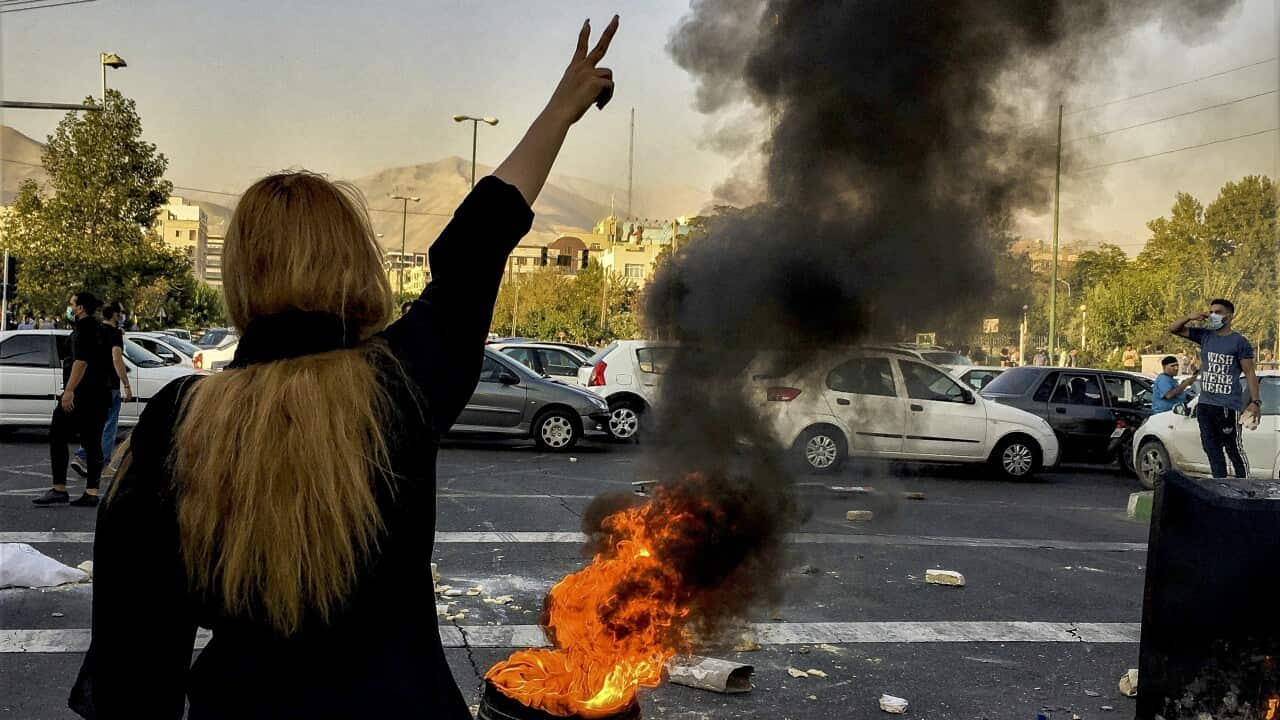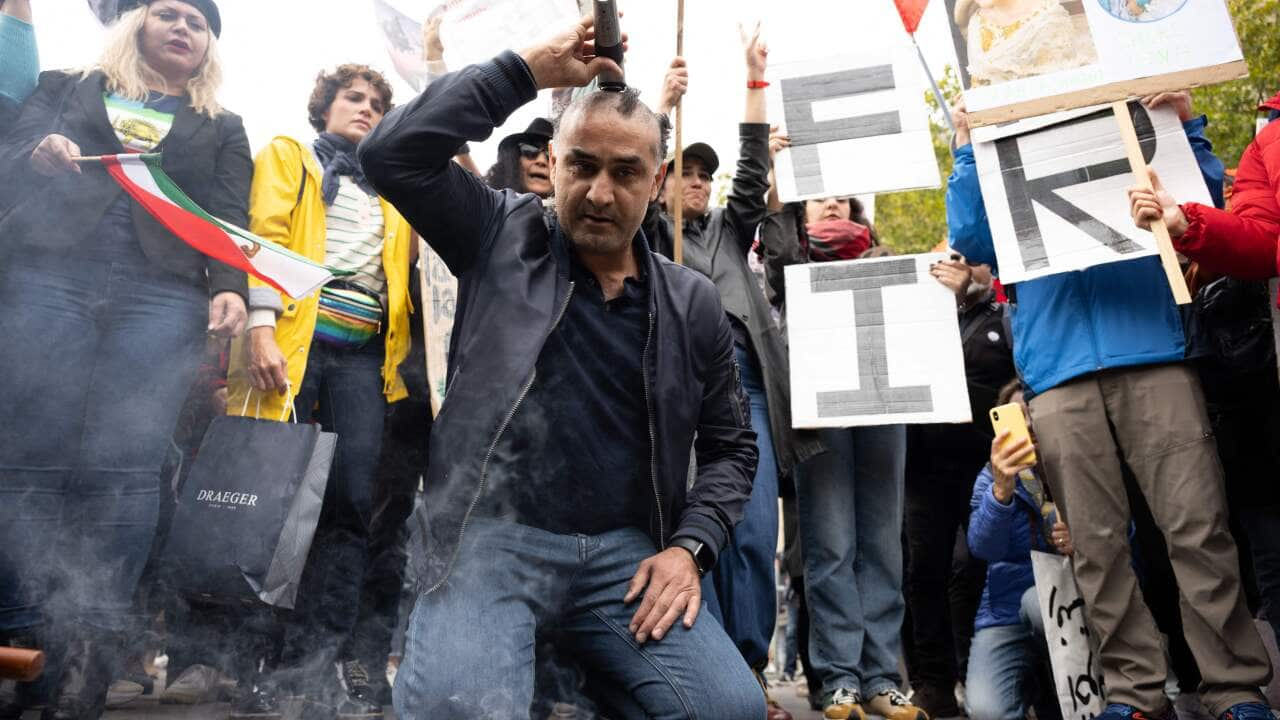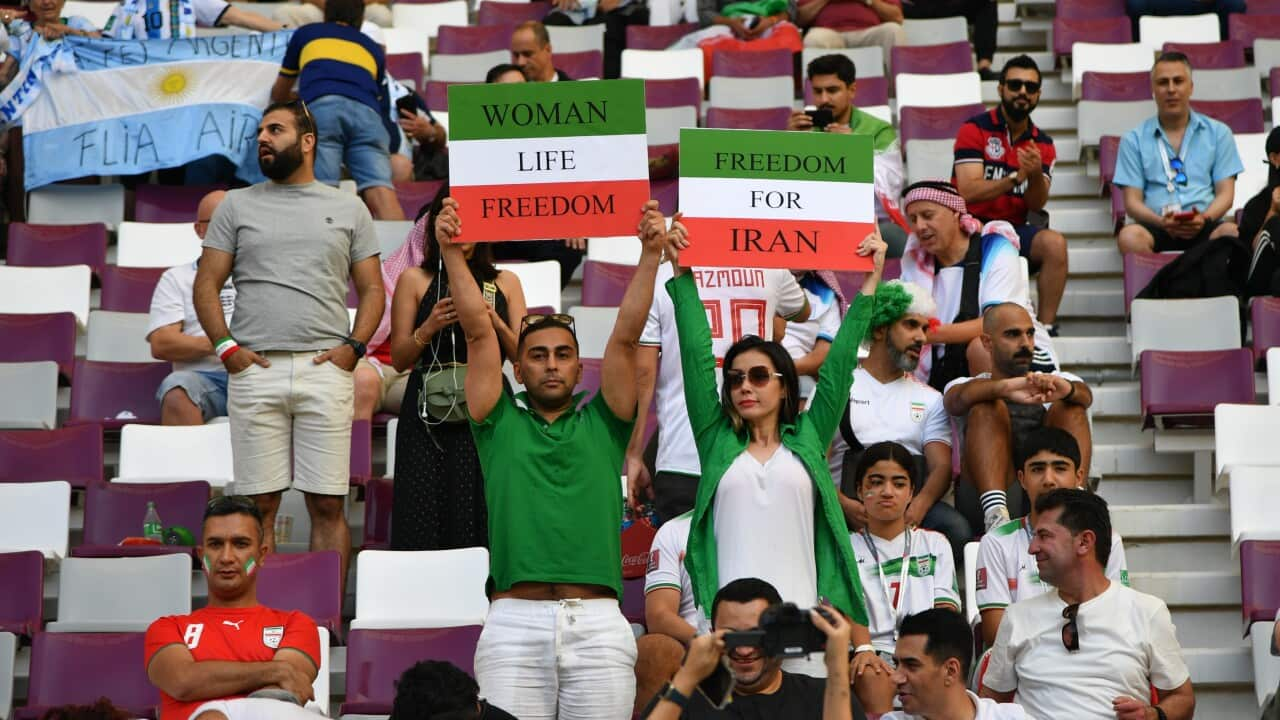Key Points
- Iranian authorities say they are reviewing the country's headscarf laws.
- It comes after months of protests across the country.
- Iranians have been fighting for greater freedom from the government, particularly for women.
Iran says it is reviewing a decades-old law that requires women to cover their heads, as it struggles to quell more than two months of protests linked to the dress code.
Protests have swept Iran since the September 16 death in custody of Mahsa Amini, a 22-year-old Iranian of Kurdish origin arrested by the morality police for allegedly flouting the sharia-based law.
Demonstrators have burned their head coverings and shouted anti-government slogans. Since Ms Amini's death, a growing number of women have not been observing hijab, particularly in Tehran's fashionable north.
"Both parliament and the judiciary are working (on the issue)" of whether the law needs any changes, Iran's attorney general Mohammad Jafar Montazeri said.
Quoted by the ISNA news agency, he did not specify what could be modified in the law by the two bodies, which are largely in the hands of conservatives.
The review team met on Wednesday with parliament's cultural commission "and will see the results in a week or two", the attorney general said.

Two Iranian women walk on a sidewalk without wearing their mandatory Islamic headscarves in Tehran, Iran, November 2022. Source: AP / Vahid Salemi/AP
President Ebrahim Raisi on Saturday said Iran's republican and Islamic foundations were constitutionally entrenched.
"But there are methods of implementing the constitution that can be flexible," he said in televised comments.
The hijab headscarf became obligatory for all women in Iran in April 1983, four years after the Islamic Revolution that overthrew the US-backed monarchy.
It remains a highly sensitive issue in a country where conservatives insist it should be compulsory, while reformists want to leave it up to individual choice.
After the hijab law became mandatory, with changing clothing norms it became commonplace to see women in tight jeans and loose, colourful headscarves.
But in July this year Mr Raisi, an ultra-conservative, called for mobilisation of "all state institutions to enforce the headscarf law".
Many women continued to bend the rules, however.
In September, Iran's main reformist party called for the mandatory hijab law to be rescinded.
The Union of Islamic Iran People Party, formed by relatives of former reformist president Mohammad Khatami, on Saturday demanded the authorities "prepare the legal elements paving the way for the cancellation of the mandatory hijab law".
The opposition group is also calling for the Islamic republic to "officially announce the end of the activities of the morality police" and "allow peaceful demonstrations", it said in a statement.











